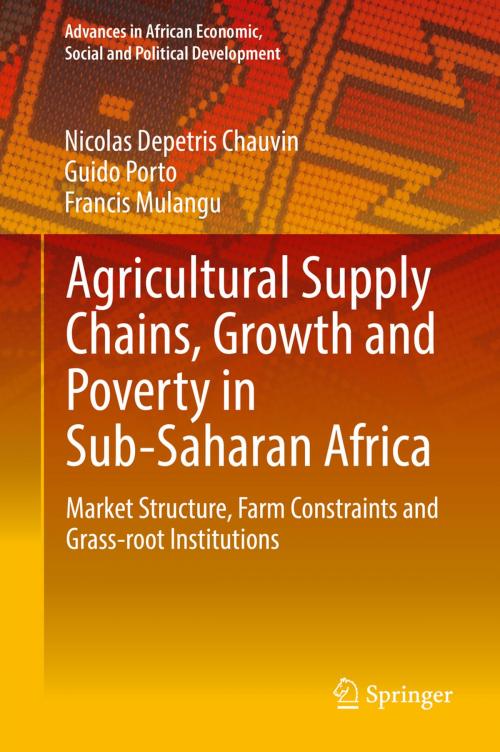Agricultural Supply Chains, Growth and Poverty in Sub-Saharan Africa
Market Structure, Farm Constraints and Grass-root Institutions
Business & Finance, Industries & Professions, Industries, Nonfiction, Social & Cultural Studies, Social Science, Sociology| Author: | Nicolas Depetris Chauvin, Guido Porto, Francis Mulangu | ISBN: | 9783662538586 |
| Publisher: | Springer Berlin Heidelberg | Publication: | February 20, 2017 |
| Imprint: | Springer | Language: | English |
| Author: | Nicolas Depetris Chauvin, Guido Porto, Francis Mulangu |
| ISBN: | 9783662538586 |
| Publisher: | Springer Berlin Heidelberg |
| Publication: | February 20, 2017 |
| Imprint: | Springer |
| Language: | English |
This book investigates if and how agricultural market structures and farm constraints affect the development of dynamic food and cash crop sectors and whether these sectors can contribute to economic transformation and poverty reduction in Africa. The authors map the current cash and food crops supply chains in six African countries, characterizing their markets structures and domestic competition policies. At the farm level, the book studies the constraints faced by small holders to increase productivity and break out of a vicious cycle in which low productivity exacerbates vulnerability to poverty. In a series of micro case studies, the project explores how cooperatives and institutions may help overcome these constraints. This book will appeal to scholars and policy makers seeking instruments to promote increased agriculture productivity, resolve food security issues, and promote agribusiness by diversifying exports and increasing trade and competitiveness.
This book investigates if and how agricultural market structures and farm constraints affect the development of dynamic food and cash crop sectors and whether these sectors can contribute to economic transformation and poverty reduction in Africa. The authors map the current cash and food crops supply chains in six African countries, characterizing their markets structures and domestic competition policies. At the farm level, the book studies the constraints faced by small holders to increase productivity and break out of a vicious cycle in which low productivity exacerbates vulnerability to poverty. In a series of micro case studies, the project explores how cooperatives and institutions may help overcome these constraints. This book will appeal to scholars and policy makers seeking instruments to promote increased agriculture productivity, resolve food security issues, and promote agribusiness by diversifying exports and increasing trade and competitiveness.















